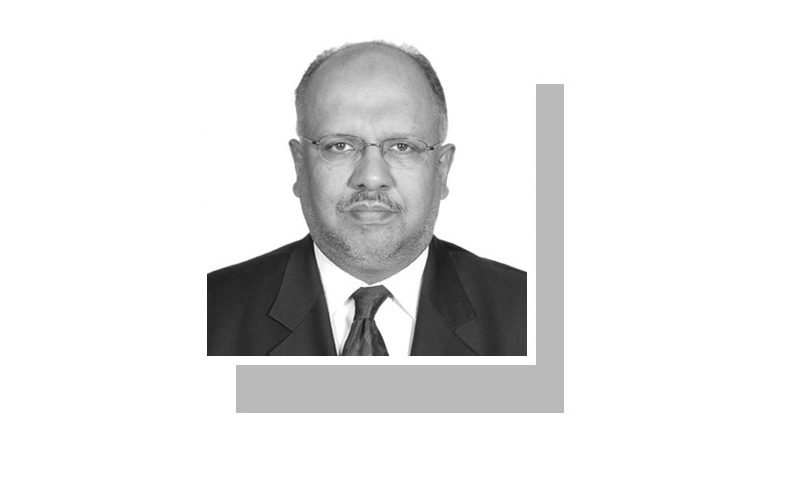
A STAGGERING rise in salaries, perks and privileges that Pakistan’s federal political representatives recently awarded themselves highlights the equally staggering disconnect between the rulers and the ruled.
No Pakistani government to date has ever convincingly demonstrated its ability to ensure that the lowest available monthly wage package will be sufficient for a household of four.
Ironically, in a country where an unchecked baby boom typically creates much larger households than the ideal of four, only the politically influential ones are positioned well enough to oversee wage increases which outpace the prevalent cost of living.
The revised wages for parliament stand clearly in sync with the character of a country where the top and self-serving political elite have time and again demonstrated a penchant to reward themselves generously.
This disconnect stands at the centre of a continuing failure to unleash forward-looking reforms that could breathe new life into South Asia’s most moribund economy. That Pakistan has failed to adequately reform itself, and the cause of progressive change mostly receives no more than mere lip service, is hardly surprising.
Ultimately, addressing this gap rather than the needs of Pakistan’s political class will clearly be the only way forward to create a large enough middle class at the centre of the future engine of growth.
The disconnect was yet again highlighted just recently when the government appeared to embarrassingly climb down from one of the more ambitious plans in years: to finally begin a credible system of taxation for real-estate transactions. Although this sector has generated a large-scale set of activities and revenue over time, its contribution to tax collections has been dismal.
Only the politically influential are positioned to oversee wage increases.
After Finance Minister Ishaq Dar served a strong message in this year’s budget to bring valuations of real estate closer to the realities of Pakistan, a clamour quickly emerged against the move. As witnessed on other ambitious past initiatives for the widening of Pakistan’s pathetically narrow tax collection base, the momentum behind the government’s real-estate initiative quickly lost steam.
In a land where the high and mighty have gained from a series of amnesties in the past, the latest one for real estate has quickly marked a retreat from a more meaningful move to tax the beneficiaries from lucrative deals. Instead of forcing transactions to be taxed at their actual rate, stakeholders from real estate have been allowed to pay a 3pc tax on the difference between a rate assessed by the Federal Board of Revenue, and a typically lower rate assessed by the office of the deputy commissioner in a given district. The payment of the 3pc tax, tragically, will lead to the authorities practically abdicating their right to ask any further questions on a given real-estate transaction.
Going forward with this background, it is difficult to imagine long overdue and credible reforms being put in motion in the foreseeable future. Indeed, with the election campaign ahead of the 2018 polls due to kick in soon, there should be little hope associated with a coming reformist agenda that will put Pakistan’s low- and medium-income communities at the top of the national list of priorities.
Part of the continuing status quo, which has reinforced policies to serve the political elite, will likely continue under Pakistan’s present-day trajectory, irrespective of its consequences for the lives of the mainstream. And the failure by the state to come down hard in favour of long overdue reforms, notably in areas such as reforming dysfunctional governance or battling corruption, will inevitably continue to undermine Pakistan’s outlook.
With the pro-elite trend written large over the horizon, Pakistan’s fate will remain that of a country which is unwilling to change for the better. The outcome of this trend will indeed be tragic, irrespective of the expected future upturn frequently at the centre of one official message after another.
And as for the fate of the political class, a much too visible public apathy with Pakistan’s democratic order will likely grow. For the public, the central question, beyond delivering votes during election after election, is just one: how far are elected representatives able to serve the public in key areas where lives of individuals are challenged on a daily basis?
In sharp contrast to the recent salary increase for Islamabad’s ruling politicians, little has been visibly achieved either in terms of policies or bringing progressive change at the grass roots. For ordinary Pakistanis, access to a minimum acceptable government-provided medical care, or education from school to colleges and universities, is just not a given.
And for a number of other vital needs, such as personal security or creation of jobs, the Pakistani state abdicated its responsibilities long ago. The episode of the ruling political elite receiving higher salaries may be recent, but the increasing disconnect across Pakistan is clearly chronic.
The writer is an Islamabad-based journalist.
Published in Dawn December 8th, 2016












































